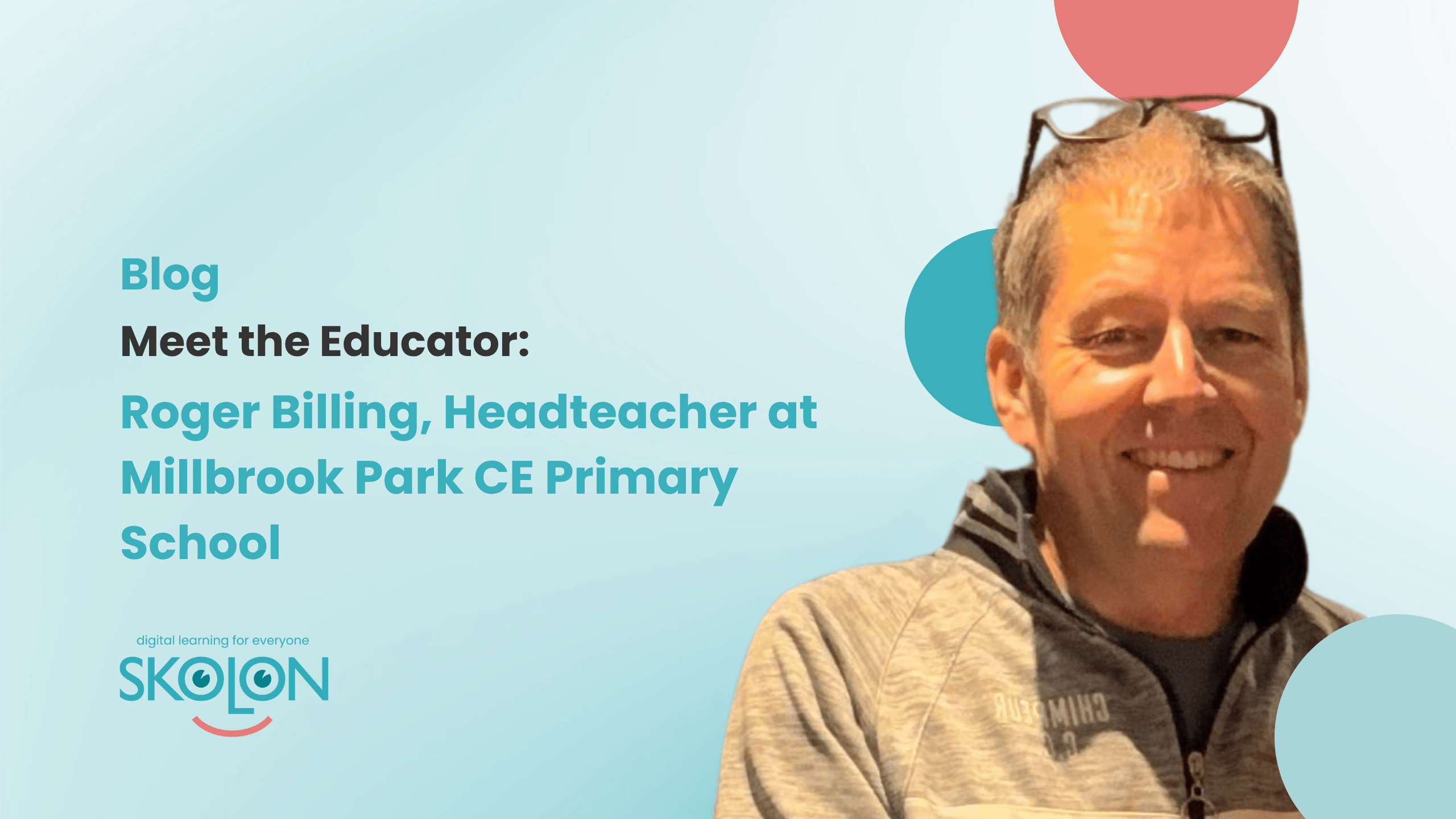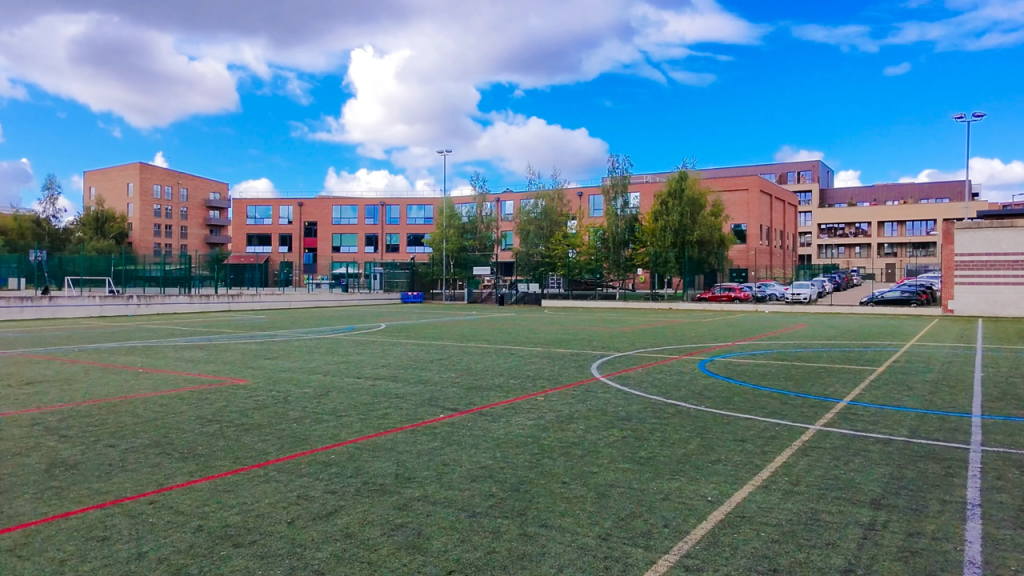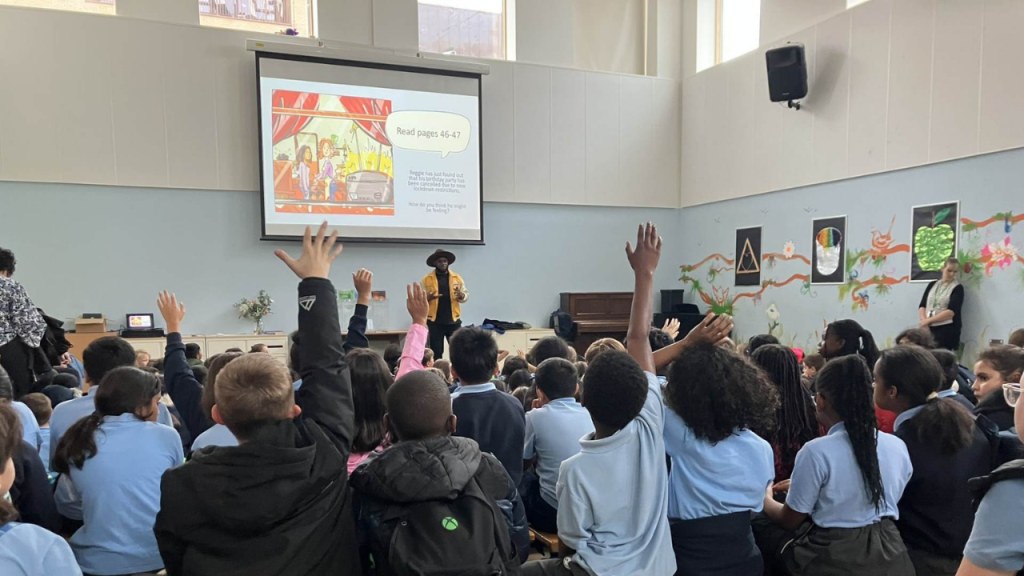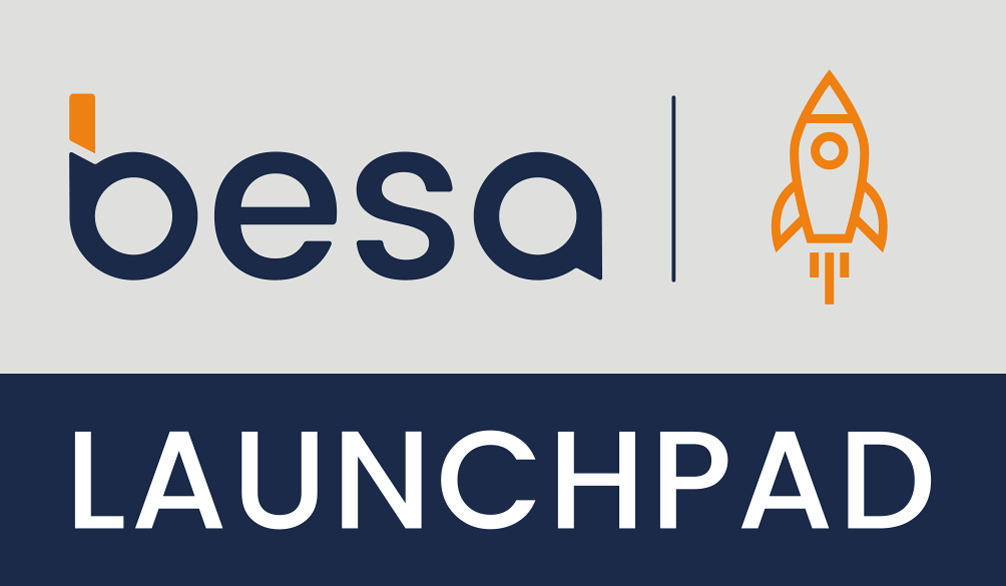Meet the Educator: Roger Billing – Building Community and Confidence


Welcome back to “Meet the Educator”, our monthly spotlight series where we share the real stories, insights, and everyday brilliance of educators across the country.
In this edition, we’re thrilled to introduce you to Roger Billing, Headteacher of Millbrook Park Primary School, a two-form entry school in Barnett, on the edge of London.
Roger’s 25-year journey in education, which includes stints as a teacher and deputy head, has led him to a community-focused role that is as rewarding as it is demanding. He’s all about creating a central hub for his diverse community, and yes, that community includes actual, real life GOATS!
Read on to meet Roger.
A lifelong calling: from Cubs to the classroom
If you’re a Meet the Educator regular, you’d know that most of the educators I’ve come across have accidentally made their way into the education sector, yet refreshingly, Roger’s path to teaching was intentional.
“I think I always wanted to be a teacher. That was always on the plan,” he reflects, a desire that was instilled and solidified around the age of 14 after helping out with his younger brother’s Cubs and Beavers groups.
It was this early calling to help others that turned into a 25-year career, and he even inspired his brother to follow suit—who is now also a headteacher!
In his current role at Millbrook Park, Roger faces a uniquely diverse and rapidly changing landscape. In an area that was built up largely only in the last decade, the school now supports over 70 different languages spoken by pupils, and is experiencing an increased need for SEND support.
“My day is pretty varied to say the least,” he admits.

A school as a community hub
With no central community centre, sports centre, or even nearby church in the surrounding new-build area, Millbrook Park Primary School has intentionally stepped up to become the vital community hub.
As mentioned, Roger’s days are varied, but he prioritises being visible:
“whether that’s on the gate in the morning or the afternoon… or just being in and around school, being on lunch duty, or being outside during playtimes”.
Whilst this is not an entirely new technique to the education sector, it’s certainly refreshing to hear about it in action in the present day. A 1985 study by Hallinger & Murphy established that “maintaining high visibility” as a key function that helps principals promote a positive school learning climate, and that is abundantly evident in Millbrook Park.
Furthermore, Roger’s commitment to community is more than just an operational choice—it’s now one of the school’s core values. They replaced ‘courage’ with ‘community’ after consulting with children, families, staff, and governors, finding that ‘friendship and community’ was what everyone valued most.
One of the key initiatives fostering this community spirit is the Share Our Learning (SOL) Day. On these days, parents are invited into school to take part in classroom activities alongside their children. This simple yet meaningful event has had a powerful impact, with many parents, often living in the same block of flats, meeting each other for the first time.
Building on this success, the school is also planning to launch a weekly toddler group that will be open to the wider community, not just Millbrook Park families, providing an affordable and welcoming local resource.
The voice of the child and the challenge of change
Roger’s initial goals upon joining in January 2023 were built on trust and giving children a voice. He noticed on his first visit that while children were learning, they didn’t freely articulate their enjoyment or knowledge, needing to be heavily probed.
“The kids were able to articulate what it was that they were learning and what they liked about the school, but it just didn’t come very freely. They just had to be probed to actually get those answers out for the Ofsted inspector.”
This focus on empowerment has led to real-world impact. He shared a recent success where two pairs of children organised a bake sale and bracelet sale, raising over £250 for a local food bank.
“They were able to do that because of what I guess we’ve done as a school in enabling that,” he explains.
The school’s student demographic is also changing rapidly, presenting unique challenges. In a short space of time:
The number of children with an Education, Health, and Care (EHC) Plan has nearly tripled, from 11 to 31, with more on the waiting list.
There has been an influx of children joining in upper-year groups (Years 4, 5, and 6) with literally no English.
For Roger, it’s a matter of supporting the whole ecosystem: the families, the teachers, and most importantly, the children.
He is proud of the community’s response, citing one child who joined in Year 5 with no English, but by the end of Year 6, could write competently, thanks to hard work at home and the school’s early morning support sessions.

Tech that empowers: from phonics to podcasts
Technology at Millbrook Park is used to overcome language barriers and empower students creatively in a myriad of ways, such as:
- Phonics support: They use the Read Write Inc. phonics scheme and created a unique pack for parents. This involved taking the scheme’s sharable phonics videos and turning them into a three-page document of QR codes so parents—including those with English as an additional language—could easily scan and access the correct sound videos to practise at home.
- Media crew: A group of 25 children from Years 4, 5, and 6 form the “Visual Vortex Media Crew” . They have visited Sky Studios, use the school’s full-size green screen for superimposing images behind them in films, and produce a podcast where they read out the weekly newsletter, which is available on platforms like Spotify and Amazon.
- Creative learning: The green screen has also been a “standout success” for foundation subjects, used to create films about topics like Greek Gods, fostering an excited and purposeful use of technology.
Roger’s aim is to steer children toward a positive and purposeful use of technology, highlighting a former student from the Media Crew who leveraged his skills to run a successful YouTube channel about his coin-collecting hobby and get published in a coin magazine.
Roger’s wish: the need for funding
When asked the classic “magic wand” question on the one challenge he would solve in education, Roger’s answer is direct and aligns with other educators: a little bit more money.
His rationale is deeply rooted in the current reality: “The variety in a class of 30 children is phenomenal, and the needs—whether academic, social-emotional, or special education are significant.”
“For me, it’s about people. If I can have people in my school who can be that person to check in with a kid… who can be that person to go and support somebody who’s got English as an additional language… I just know that just with a little bit more money, it just would feel that we could give them that little bit more.”
He notes that current support, like an early morning reading group, relies on staff volunteering, and a modest increase in funding would make such programs sustainable, directly improving children’s access to the curriculum and boosting their confidence.
Roger’s 25 years in the sector lead him to a final, vital lesson for the future: “never lose sight of the fact that we are dealing with children.”
He stresses that the academic elements of education are crucial, but it must be balanced with a focus on ensuring kids are happy, confident, resilient, and have high self-esteem, preparing them to be “our plumbers and our lawyers and our dentists” of the future.
Roger Billing’s story is a powerful reminder that the best schools are more than just centres of learning… Our conversation highlighted that they are vibrant, adaptable community hubs, passionately led by educators who champion both academic rigour and the emotional well-being of every child.
Speaking with Roger was an absolute pleasure, the best practice taking place at the school is truly inspiring, reflecting a deep commitment to nurturing confident, creative, and compassionate learners.
To find out more about Millbrook Park CE Primary School, click here.
If you’d like to participate in Meet the Educator, or know a suitable candidate, click below.
Information
Share this story
Subscribe
Would you like our newest articles delivered to your inbox? Sign up now!
Welcome back to “Meet the Educator”, our monthly spotlight series where we share the real stories, insights, and everyday brilliance of educators across the country.
In this edition, we’re thrilled to introduce you to Roger Billing, Headteacher of Millbrook Park Primary School, a two-form entry school in Barnett, on the edge of London.
Roger’s 25-year journey in education, which includes stints as a teacher and deputy head, has led him to a community-focused role that is as rewarding as it is demanding. He’s all about creating a central hub for his diverse community, and yes, that community includes actual, real life GOATS!
Read on to meet Roger.
A lifelong calling: from Cubs to the classroom
If you’re a Meet the Educator regular, you’d know that most of the educators I’ve come across have accidentally made their way into the education sector, yet refreshingly, Roger’s path to teaching was intentional.
“I think I always wanted to be a teacher. That was always on the plan,” he reflects, a desire that was instilled and solidified around the age of 14 after helping out with his younger brother’s Cubs and Beavers groups.
It was this early calling to help others that turned into a 25-year career, and he even inspired his brother to follow suit—who is now also a headteacher!
In his current role at Millbrook Park, Roger faces a uniquely diverse and rapidly changing landscape. In an area that was built up largely only in the last decade, the school now supports over 70 different languages spoken by pupils, and is experiencing an increased need for SEND support.
“My day is pretty varied to say the least,” he admits.

A school as a community hub
With no central community centre, sports centre, or even nearby church in the surrounding new-build area, Millbrook Park Primary School has intentionally stepped up to become the vital community hub.
As mentioned, Roger’s days are varied, but he prioritises being visible:
“whether that’s on the gate in the morning or the afternoon… or just being in and around school, being on lunch duty, or being outside during playtimes”.
Whilst this is not an entirely new technique to the education sector, it’s certainly refreshing to hear about it in action in the present day. A 1985 study by Hallinger & Murphy established that “maintaining high visibility” as a key function that helps principals promote a positive school learning climate, and that is abundantly evident in Millbrook Park.
Furthermore, Roger’s commitment to community is more than just an operational choice—it’s now one of the school’s core values. They replaced ‘courage’ with ‘community’ after consulting with children, families, staff, and governors, finding that ‘friendship and community’ was what everyone valued most.
One of the key initiatives fostering this community spirit is the Share Our Learning (SOL) Day. On these days, parents are invited into school to take part in classroom activities alongside their children. This simple yet meaningful event has had a powerful impact, with many parents, often living in the same block of flats, meeting each other for the first time.
Building on this success, the school is also planning to launch a weekly toddler group that will be open to the wider community, not just Millbrook Park families, providing an affordable and welcoming local resource.
The voice of the child and the challenge of change
Roger’s initial goals upon joining in January 2023 were built on trust and giving children a voice. He noticed on his first visit that while children were learning, they didn’t freely articulate their enjoyment or knowledge, needing to be heavily probed.
“The kids were able to articulate what it was that they were learning and what they liked about the school, but it just didn’t come very freely. They just had to be probed to actually get those answers out for the Ofsted inspector.”
This focus on empowerment has led to real-world impact. He shared a recent success where two pairs of children organised a bake sale and bracelet sale, raising over £250 for a local food bank.
“They were able to do that because of what I guess we’ve done as a school in enabling that,” he explains.
The school’s student demographic is also changing rapidly, presenting unique challenges. In a short space of time:
The number of children with an Education, Health, and Care (EHC) Plan has nearly tripled, from 11 to 31, with more on the waiting list.
There has been an influx of children joining in upper-year groups (Years 4, 5, and 6) with literally no English.
For Roger, it’s a matter of supporting the whole ecosystem: the families, the teachers, and most importantly, the children.
He is proud of the community’s response, citing one child who joined in Year 5 with no English, but by the end of Year 6, could write competently, thanks to hard work at home and the school’s early morning support sessions.

Tech that empowers: from phonics to podcasts
Technology at Millbrook Park is used to overcome language barriers and empower students creatively in a myriad of ways, such as:
- Phonics support: They use the Read Write Inc. phonics scheme and created a unique pack for parents. This involved taking the scheme’s sharable phonics videos and turning them into a three-page document of QR codes so parents—including those with English as an additional language—could easily scan and access the correct sound videos to practise at home.
- Media crew: A group of 25 children from Years 4, 5, and 6 form the “Visual Vortex Media Crew” . They have visited Sky Studios, use the school’s full-size green screen for superimposing images behind them in films, and produce a podcast where they read out the weekly newsletter, which is available on platforms like Spotify and Amazon.
- Creative learning: The green screen has also been a “standout success” for foundation subjects, used to create films about topics like Greek Gods, fostering an excited and purposeful use of technology.
Roger’s aim is to steer children toward a positive and purposeful use of technology, highlighting a former student from the Media Crew who leveraged his skills to run a successful YouTube channel about his coin-collecting hobby and get published in a coin magazine.
Roger’s wish: the need for funding
When asked the classic “magic wand” question on the one challenge he would solve in education, Roger’s answer is direct and aligns with other educators: a little bit more money.
His rationale is deeply rooted in the current reality: “The variety in a class of 30 children is phenomenal, and the needs—whether academic, social-emotional, or special education are significant.”
“For me, it’s about people. If I can have people in my school who can be that person to check in with a kid… who can be that person to go and support somebody who’s got English as an additional language… I just know that just with a little bit more money, it just would feel that we could give them that little bit more.”
He notes that current support, like an early morning reading group, relies on staff volunteering, and a modest increase in funding would make such programs sustainable, directly improving children’s access to the curriculum and boosting their confidence.
Roger’s 25 years in the sector lead him to a final, vital lesson for the future: “never lose sight of the fact that we are dealing with children.”
He stresses that the academic elements of education are crucial, but it must be balanced with a focus on ensuring kids are happy, confident, resilient, and have high self-esteem, preparing them to be “our plumbers and our lawyers and our dentists” of the future.
Roger Billing’s story is a powerful reminder that the best schools are more than just centres of learning… Our conversation highlighted that they are vibrant, adaptable community hubs, passionately led by educators who champion both academic rigour and the emotional well-being of every child.
Speaking with Roger was an absolute pleasure, the best practice taking place at the school is truly inspiring, reflecting a deep commitment to nurturing confident, creative, and compassionate learners.
To find out more about Millbrook Park CE Primary School, click here.
If you’d like to participate in Meet the Educator, or know a suitable candidate, click below.
Share this story
Subscribe
Would you like our newest articles delivered to your inbox? Sign up now!




